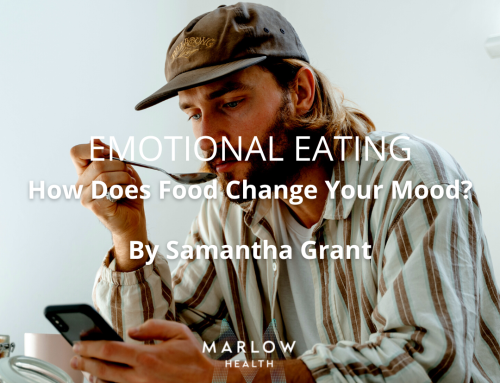Are you one of the many people who have been struggling with fat loss despite counting calories? You’re not alone. The truth is, not all calories are created equal, and simply reducing your caloric intake may not be enough to achieve your fat loss goals. That’s where a nutritional therapist can help.
Calories are often the focus when it comes to nutrition and weight loss. The idea of “calories in versus calories out” is frequently promoted as the key to achieving fat loss. However, is it really that simple? Have you ever considered how different foods can have different effects on our metabolism and ultimately, our health?
In the 1800s, chemist W.O. Atwater developed a system to measure energy, which involved burning food samples and recording the amount of heat they released. This system translated to calories, which are now used to measure the energy content of food. However, as humans, we are not calorimeters. We don’t burn food with fire to extract the energy from it. Instead, we metabolise food.
Over the years, our understanding of calories has evolved. We now know that the way our body metabolises food can be influenced by various factors, including the accompanying macronutrients (carbohydrates, proteins, fats, and fiber) and micronutrients (vitamins and minerals). For example, a calorie from chicken will metabolise differently and affect our hunger and energy levels differently than a calorie from a sugary drink.
Furthermore, not all calories are created equal. The thermic effect of food, which is the energy required to digest and process it, can also vary and impact the number of calories the body retains. In fact, the body uses more energy to digest protein than it does to digest carbohydrates. This is why 50 calories of protein will satisfy us for longer than 50 calories of processed white bread.
“We Need to Start Seeing Food as Food and Not Just Calories. ”
Food labels don’t account for how the body digests food, losses to gut bacteria and energy spent digesting the food. It’s important to consider the quality of the calories we consume, rather than simply focusing on the quantity. While counting calories can be helpful for fat loss, it’s important to keep in mind that the source of those calories matters. Research suggests that calorie counting may not promote long-term fat loss as it can be difficult to adhere to and may put a strain on our mental health and relationship with food. Instead, we should focus on learning about our body’s hunger and fullness levels (mindful and intuitive eating), and nourishing it with eating a varied balanced diet rich in fibre, plants and protein.
“We support clients with personalised recommendations that they can adhere to, coaching and support to achieve long-term success with no diets I’m sight! ”
While it’s important to have an understanding of what a calorie is, counting calories alone may not promote long-term fat loss and can be difficult to adhere to, potentially leading to a strain on mental health and the relationship with food. Instead, it is recommended to focus on mindful and intuitive eating, learning about the body’s hunger and fullness levels, and nourishing it with a variety of foods rich in fibre, plants, and protein.
At the Jessica May Clinic, we believe that life should not be about feeling exhausted, depleted, and stuck in a cycle of yo-yo dieting. We focus on empowering our clients to achieve sustainable, long-term results by addressing the underlying factors that may be impacting their health and well-being.
Our approach goes beyond just counting calories and restricting certain foods, instead, we prioritise nourishing the body with a variety of nutrient-dense foods and supporting a healthy lifestyle that promotes optimal health and vitality. Jessica May will guide you every step of the way, providing food recommendations, accountability, habit forming and personalised tips that fit in with your lifestyle.
In the Jessica May Clinic we look at you as an individual, we use a functional medicine model to unearth the potential why behind your symptoms. When wanting to achieve fat loss we look at:
-
Lifestyle and environmental factors that could be influencing your ability to loose fat.
-
Your bodies glucose response to certain foods.
-
Functional blood or stool testing.
-
Analyse the fibre and micronutrients in the diet, not just the calories.
-
Supplement recommendations to support your lifestyle and goals.
-
NLP coaching techniques for accountability and habit forming.
-
Journaling foods, lifestyle and feelings with personalised tips and pointers.
If you are interested in finding out about how we can support you in reaching your fat loss goals and nutrition for long-term health you can book a free 20 discovery call with Jessica May to find out more…
Jessica May will be launching her group nutrition program – An holistic approach to long term fat loss on 23rd April, you can find more information in a discovery call






